QS Master Rankings 2025- Edugo Abroad
Europe Leads the QS Business Masters Rankings 2025: What Sets It Apart?

Europe Leads the QS Business Masters Rankings 2025: What Sets It Apart?
Table of Content:
- Introduction
- Europe dominates the QS Business Masters Rankings 2025.
- 66 of the top 100 MIM programs are based in Europe.
- QS Rankings 2025 Methodology
- Key evaluation metrics: Employability, Alumni Outcomes, Value for Money, Thought Leadership, and Diversity.
- Key evaluation metrics: Employability, Alumni Outcomes, Value for Money, Thought Leadership, and Diversity.
- Europe’s Leading Business Schools
- France leads with HEC Paris at #1.
- Other top schools: ESSEC, NEOMA, SKEMA, KEDGE, Montpellier.
- Ireland, UK, and Germany maintain strong rankings.
- Why European Business Schools Stand Out
- Strong industry connections and employability.
- High ROI and cost-effectiveness.
- Cutting-edge research and innovation.
- Favorable post-study work opportunities.
- Cultural diversity and global exposure.
- Notable Trends in European Higher Education
- Focus on interdisciplinary studies, sustainability, and AI-driven research.
- Growth in digital transformation and hybrid learning.
- Increased investment in student well-being and diversity.
- Impact of QS Rankings on Higher Education
- Helps students choose the right business school.
- Attracts global talent to European universities.
- Strengthens university-industry collaborations.
- Influences educational policies and reforms.
- Conclusion
- Why Europe remains a top choice for business
-
Introduction:
The QS Business Masters Rankings 2025 have once again highlighted Europe’s supremacy in business education, with an impressive 66 out of the top 100 Masters in Management (MiM) programs based in Europe. This achievement underscores the continent’s long-standing tradition of academic excellence, innovation, and strong industry connections that make its business education highly sought after worldwide.
For students aspiring to build successful careers in management, finance, and business analytics, European business schools offer some of the most recognized and globally respected programs. But what makes Europe such a powerhouse in business education? Let’s explore the key factors behind Europe’s dominance in the latest QS rankings.
Methodology Behind QS Rankings 2025
The QS World University Rankings have long been a trusted source for evaluating global higher education institutions. The QS Business Masters Rankings 2025 follows an accurate methodology that assesses universities across multiple dimensions to ensure a fair and comprehensive evaluation. These rankings help students, employers, and academic institutions gauge the quality of business education worldwide.
Key Metrics of QS Business Masters Rankings 2025
- Employability (35%) – This metric evaluates how well graduates from a particular business school perform in the job market. QS assesses employer reputations, alumni career success, and the overall employability of graduates.
- Alumni Outcomes (15%) – The ranking measures the alumni achievements by tracking their career trajectories and leadership roles across industries.
- Value for Money (20%) – QS considers tuition fees versus graduate salaries to determine whether a degree offers a strong return on investment.
- Thought Leadership (20%) – The influence of a business school in shaping academic and industry discussions is assessed through faculty expertise, research output, and institutional reputation.
- Class & Faculty Diversity (10%) – The diversity of a program’s student and faculty body is analyzed to ensure an inclusive and globally representative learning environment.
By incorporating these five key metrics, the QS Rankings 2025 provides a well-rounded analysis of business schools, helping prospective students make informed decisions about their higher education journey.
Europe’s Leading Business Schools in the QS Rankings 2025
France Takes the Lead
France continues to be a global leader in business education, with HEC Paris securing the #1 spot worldwide for its Master in Strategic Management program. The institution’s continued dominance is attributed to its strong industry ties, research contributions, and high employability rates among graduates.
Other notable French institutions in the QS rankings include:
- ESSEC Business School – It is renowned for its academic programs and strong industry connections. Its Master in Management (MiM) program is consistently ranked among the best globally, offering a flexible curriculum that allows students to gain hands-on experience through apprenticeships, internships, and international exchange programs.
- NEOMA Business School – With campuses in Reims, Rouen, and Paris, NEOMA is quickly gaining recognition for its emphasis on entrepreneurial thinking and digital transformation. Its incubator program supports aspiring business leaders in launching startups, while its strong ties to industries such as luxury, finance, and supply chain management provide students with direct exposure to real-world business challenges.
- SKEMA Business School – It has positioned itself at the forefront of digital transformation and global business strategy. With multiple campuses in France and international locations in the US, China, and Brazil, SKEMA offers a truly global learning environment. The school is particularly strong in data science, fintech, and sustainability, equipping students with the skills needed to navigate the modern business world.
- KEDGE Business School – It is recognized for its strong industry collaborations and its focus on experiential learning. Students engage in real-world consulting projects, business challenges, and case competitions with leading multinational companies. The school offers specialized programs in management, making it an ideal choice for those looking to enter business sectors. Its strong presence in Marseille, Bordeaux, Paris, and Toulon ensures access to diverse industries and economic hubs.
- Montpellier Business School – This school integrates CSR (Corporate Social Responsibility) and sustainability principles into its core curriculum, ensuring graduates are equipped to lead businesses with a social and environmental impact. It also provides extensive scholarships and financial aid programs, making high-quality education accessible to a diverse student body.
Ireland’s Growing Influence
Ireland is also making significant strides, with Trinity College Dublin securing a top-tier position in the Masters in Management category. This further reinforces Europe’s reputation as a premier destination for business education.
Ireland’s success can be attributed to:
- Strong partnerships with multinational corporations.
- A booming tech and financial sector.
- Attractive post-study work opportunities for international students.
The United Kingdom and Germany Maintain Their Strong Presence
The United Kingdom continues to be a dominant player, with schools like London Business School, University of Oxford - Said Business School, and Warwick Business School ranking highly.
Germany is also well-represented, with Mannheim Business School and WHU – Otto Beisheim School of Management offering globally competitive MiM programs that blend academic preciseness with hands-on industry experience.
What Makes European Business Schools Stand Out?
Europe’s business education model is built on several core pillars that make it a preferred choice for students worldwide:
- Strong Industry Connections and Employability
With a large number of multinational corporations headquartered in Europe, business schools have direct access to major employers. Companies such as L’Oréal, BNP Paribas, Airbus, and Deutsche Bank actively recruit from top business schools, ensuring high employability rates for graduates.
According to the QS Employability Index, European graduates are highly valued, with HEC Paris boasting a 93% employability rate within three months of graduation.
- High Return on Investment (ROI) and Value for Money
One of the key advantages of pursuing a business master’s in Europe is the cost-effectiveness compared to the US. Tuition fees for MiM programs in Europe typically range between €20,000 - €40,000, significantly lower than the $60,000 - $100,000 costs in the US.
Moreover, the starting salaries for graduates from top European schools range between €50,000 - €120,000, ensuring a strong return on investment (ROI).
- Cutting-Edge Research and Thought Leadership
European business schools are home to some of the most influential research centers and faculty members. Institutions like INSEAD, London Business School, and Bocconi University are at the forefront of business research, contributing significantly to global thought leadership in areas such as finance, sustainability, artificial intelligence, and digital transformation.
- Post-Study Work (PSW) Opportunities
Many European countries offer favorable post-study work visas, allowing international students to gain professional experience after completing their degrees.
- France: Offers a 2-year post-study work visa for non-EU graduates.
- Germany: Provides an 18-month job-seeking visa for international students.
- Ireland: Allows non-EU graduates to stay for up to 2 years under the Third Level Graduate Programme.
This makes Europe an attractive destination for students looking to launch their careers in a global business environment.
- Cultural Diversity and International Exposure
With a large number of international students and faculty, European business schools offer a truly global learning experience. Schools like ESSEC, IE Business School, and ESADE boast student populations from over 100 nationalities, fostering cross-cultural collaboration and networking opportunities.
Notable Trends in European Higher Education
The 2025 QS Business Masters Rankings reveal key trends shaping higher education across Europe. Institutions that emphasize interdisciplinary studies, sustainability, and AI-driven research are climbing the ranks. European universities are also at the forefront of digital transformation, with hybrid learning models and virtual classrooms becoming integral to education.
A notable shift is the increasing prominence of universities in countries like Germany, France, and the Netherlands. These nations are heavily investing in research infrastructure, international collaborations, and industry partnerships, making them attractive destinations for global talent.
Employability and skill-based education have become crucial benchmarks for success. European universities that integrate real-world applications into their curricula—through internships, corporate tie-ups, and startup incubation programs—are seeing a rise in their global standing. The emphasis on innovation-driven education ensures graduates are well-equipped for evolving job markets.
Additionally, student well-being and diversity are gaining prominence. Institutions are strengthening mental health services, offering flexible study options, and promoting inclusivity to create a more supportive learning environment. Universities that prioritize multicultural engagement and equal opportunities for international students are receiving greater recognition in global rankings.
How QS Rankings Influence Higher Education Decisions
- Helping Students Choose the Right Business School
With thousands of business programs worldwide, QS Rankings provide a trusted benchmark for students to compare institutions based on employability, alumni success, and academic quality. This helps them make informed decisions about where to study.
- Attracting Global Talent to European Business Schools
Europe’s dominance in the rankings highlights the strong return on investment (ROI) offered by its business schools. Institutions like HEC Paris, LBS, and IESE consistently attract high-caliber international students, enhancing the global learning experience.
- Strengthening University-Industry Collaborations
The rankings encourage universities to form strong industry partnerships, ensuring that students have access to real-world business challenges, internships, and job placements in multinational corporations like JP Morgan, McKinsey, and Amazon.
- Driving Policy and Educational Reforms
Governments and educational bodies in Europe use QS Rankings as a measure of institutional success. This has led to increased investments in research, student exchange programs, and scholarship opportunities, making European business schools even more competitive globally.
Explore European Management Education Opportunities
The QS Business Masters Rankings 2025 reaffirm Europe’s dominance as a global leader in business education. With world-renowned institutions, cutting-edge curricula, strong industry connections, and high post-graduation employability, European business schools offer an unparalleled return on investment. Whether you're aiming for a career in finance, consulting, entrepreneurship, or technology, Europe provides a dynamic, diverse, and innovation-driven learning environment that equips you for global success.
Interested in studying at a top-ranked business school in Europe?
Get expert guidance from Edugo Abroad to find the right program for your career goals!
FAQs
Get A Free Consulting Today
Get your answers related to abroad study.



